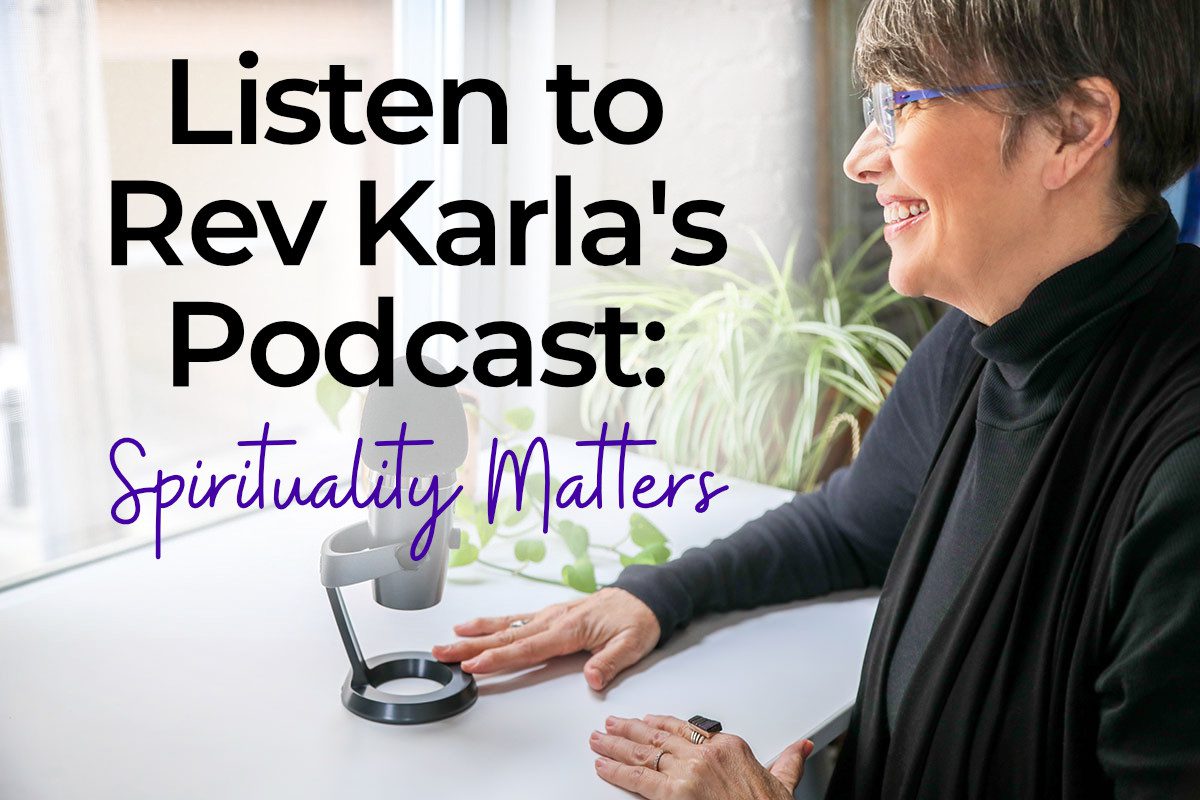
Unlearning toxic theology and finding your beliefs
I’m often asked what I believe, and I rarely answer for several reasons.
The primary reason I don’t answer is because our dialogue then becomes about one person proving the other person wrong about what they believe.
Or at least that has been my experience. I will often be approached by people who “mean no offense” or who are “genuinely curious” about what I believe, before they begin to slam Bible verses at me and label me a heretic.
When I accept their invitation to debate my faith, I’m often entering it at the space where those asking the questions control the rules—meaning, my faith will be filtered through someone’s interpretation of scripture.
And I’ve already been labeled a heretic before we even begin the conversation, so no thank you.
To put it bluntly, my spirituality is not contingent upon another’s approval, and I won’t be judged by their beliefs, values or ideologies.
Another reason that I do not often speak about my beliefs is that I want you, the spiritual sojourner, to use discernment, intuitive wisdom (soul work) and critical thinking to figure out what you believe. It’s so tempting to grasp for another’s spiritual journey and label it as our own. But deconstructing and reclaiming our spirituality requires the work of discovering who we are, what we believe, and how our beliefs serve our lives by helping us to become a better version of ourselves.
When I do make exceptions about speaking about my beliefs, it is for one of two reasons.
- Someone is weaponizing their indoctrinated beliefs because they feel morally or spiritually superior to others, I’m pushing back and calling out their bigotry and hate, or
- Someone has asked me a question about my beliefs and has shared their story in a way that invites me into their spiritual journey to help them process their beliefs.
Situation #2 is why I’m writing this blog.
I received an email recently from a follower named Ginny who wrote:
“Thank you for the many ways we can explore our deconstruction as well as understand the ways Christianity continues to oppress the marginalized. Rev Karla, in your deconstruction, are you still a believer in the Trinity? That Jesus is the way to Heaven?”
I offered my response to her email in a video, because I knew others would find it helpful. Knowing how many of you struggle with these kinds of questions and perhaps missed my video, I wanted to write my response here as well.
Ginny had also shared her thoughts about what she believed. Based on what she wrote, it sounded like she was at the point in her deconstruction where we all find ourselves eventually…
And that is asking ourselves, “What do I believe about Jesus?”
It’s a major crisis for some of us, because Jesus became a constant presence: someone we prayed to, someone we thanked when things went right in our lives and begged for mercy when things went wrong. “Thank ya Jesus” was often offered for the simplest of things, like a great parking spot to conquering a major life crisis, like defeating cancer.
It seems weird now to equate your faith with a deity that somehow cared that you got the parking space of your dreams, but such is life for the Christian who is indoctrinated to believe that Jesus walks beside us—like literally walks beside us.
The woman in the wheelchair looking for a parking spot be damned—we’re among the faithful and that parking space had our name on it before we left the house!
Thank ya Jesus!
Beyond the feelings of guilt because we’re even questioning what we believe about Jesus, we also feel like we have entered “the sacrilegious zone” of our deconstruction. This just feels wrong because for many of us, there is still something that draws us to the life and teachings of Jesus that we aren’t ready to throw out with the proverbial bath water.
Let’s also pause here for a moment, because if we are being perfectly honest, there is nothing about our deconstructing and questioning our faith that won’t be labeled heretical or sacrilegious by those indoctrinated in our former beliefs.
So, you might as well go all in and finish the journey, unless you want to return to church and submit to church authority where they will happily remind you that leaving church is a sin and it’s time to recommit, resubmit, stop the questioning and put your spirituality on autopilot.
Again—no thank you.
So here we are—it’s time to face what we believe about Jesus.
For some it is so difficult that they stop their deconstructing and say, “I’m done with it all.”
Why?
Because if what they believe about Jesus is not real, then what about their life is actually real?
They may just live life without finishing the work of deconstructing or some may choose to return to church, because it’s safer than taking a chance on reclaiming their spirituality.
But there’s a 3rd option.
It’s not the easiest, but it lives outside the construct of duality. Duality is part of our religious indoctrination—the teaching that everything is either you believe this OR you’re going to hell.
Either you believe in the virgin birth OR go to hell.
Either you believe the Bible is inerrant OR go to hell.
Either you believe that Revelations is about end-times prophecy OR go to hell.
You get the picture.
Non-duality says that we look for the other option that allows for my seat at the table of humanity to not be kicked out from underneath me because I belong here even though I don’t believe as you do.
Non-duality says that this table of humanity is not gatekept by anyone or any one religion.
All are welcome.
No one belief system controls it.
Even if your Bible tells you differently.
Duality separates and excludes—non-duality expands and invites.
What does that look like when we are facing our beliefs about Jesus?
It means that we can discover a new way of understanding who Jesus was outside the construct of our religious heritage.
It means that we examine scripture through the lens of historical, social and religious context.
And when we do?
We discover that the Trinity was not a part of original Christianity. It wasn’t even a part of Paul’s theology.
Yes. The Paul that many Christians base more of their theology around than even the teachings of Jesus.
Bishop John Shelby Spong wrote about the Trinity and said this:
“The Trinity is a human definition of God, the Trinity is not a description of God, it is rather a description of the human experience of God couched in the language of 4th century, Greek-speaking Europe.”
But wait, what about that little known verse:
“I am the way, and the truth, and the life. No one comes to the Father except through me.” John 14:6
This verse has been used to justify the exclusive Christian club that lends itself to the moral and superiority complex running around these days.
It’s certainly an option to read this as Jesus was creating a club for newbie Christians (He wasn’t—He wasn’t even attempting to start a new religion. Jesus was a Jew, honoring Jewish traditions and pushing back against its use to oppress others).
There are hundreds of ways to interpret this scripture, but let’s take a step back to look at a few things. John was writing to a specific group of people who lived in one place, and they were trying to figure out how to reconcile their spirituality, their beliefs about Jesus to what they knew at that time. These words were never supposed to mean that all other beliefs were wrong.
It meant that for the followers of Jesus, this was how they were going to find their passage to God.
Bishop Spong wrote, “That was a testimony to their experience. It was not a prescription claiming that they possessed the only doorway into the only God. This is an attempt on the part of the early disciples of Jesus to validate their experience journeying through Jesus into the mystery of the God they had known in Israel. It is amazing to me that this would someday be used to judge all other religious traditions as unworthy, wrong, or even evil.”[i] This passage is particular, not exclusive. The Gospel writer wants this specific group of people to recognize and name the distinctiveness of their identity as a people of faith.”
In Ginny’s email, she wrote about her own belief about Jesus and gave me permission to share it:
“This is where I am at a crossroads, and do I still call myself a Christian, or not? I believe Jesus was a prophet and amazing human who if we embraced his teachings vs just saying "I follow him" we would be in better shape as a whole.
God is a source of energy for me, and I believe in the Divine living within each of us. My relationship with the Divine within me is where I find my strength to advocate for the oppressed and walk alongside them learning from them as well as trying to gather my white community together to discuss our conditioning and limiting beliefs around the marginalized.”
Ginny is processing her deconstructing and her relationship with Jesus just fine. No one can take her Christian identity from her, because her identity is not contingent upon someone telling her whether or not she is doing Christianity wrong.
Ginny’s time in this spiritual wilderness to deconstruct from her indoctrinated beliefs that no longer serve her highest good is revealing to her how she can embrace her faith in a new way.
In other words, she has reclaimed her seat at the table of spirituality and found a path back to her religious heritage that will serve her well on her spiritual journey.
No doubt she will come to other places where she will need to pause and consider hard questions about her beliefs.
Perhaps you will, too.
Just know this.
It is never “either believe this or go to hell.”
There is always another option.
And with time, discernment and the guidance of wise teachers, you will find your answers.
This is when you too will reclaim your spirituality.
Blessed be.
*For what it’s worth, I do not believe in a literal hell. It felt the right time to say it.


